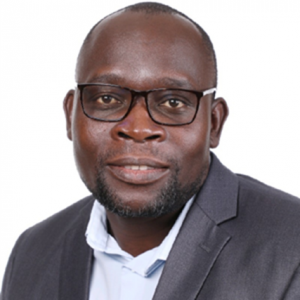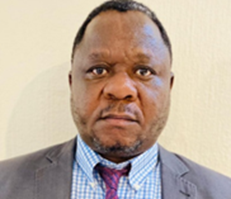Workshop On Recent Techniques in Solving Biomathematics Problems
Dates: Monday, 26 June 2023, to Friday, 30 June 2023
Venue: C-Ring C LES 309 UJ Auckland Park campus
Time: 9am-1pm
Hosted by the UJ Department of Mathematics and Applied Mathematics, this workshop aims to promote state-of-the-art research in modelling the life sciences, stimulating interdisciplinary research directions in mathematics and biology. This activity is envisioned to provide an opportunity to establish research collaboration with Philippine universities, bringing together local enthusiasts in the field, and serving as a focal group to build and strengthen a mathematical biology community in both South Africa and the Philippines.
Workshop activities include invited talks, round table discussions, and student presentations. Participants will receive valuable educational material that caters to postgraduate students, along with hands-on demonstrations of how to apply principles and techniques to solve mathematical biology problems.
Speakers and Topics
Prof Faraimunashe Chirove

Prof Faraimunashe Chirove is a NRF C2 rated (South Africa) scientist and currently an associate professor at the University of Johannesburg. His vision is to be one of the leading bio-mathematicians both nationally and internationally producing high quality and high impact research. Currently he is largely doing most of his research at cellular level and population dynamics predicting the impact of the cellular infection on the population dynamics and vice versa on human infectious diseases. His research interests have expanded into mathematical ecology, data-based modelling, agent-based modelling, applications into zoonotic diseases, stochastic modelling, multi-scale modelling, antimicrobial resistance in agricultural settings and, systems mathematical biology. He is also focusing on multi-and interdisciplinary research as to make his modelling skills manifest into realistic impact on public health and animal health policies.
Talk: On in-hosting modelling and some connection to population dynamics
The lecture will focus on designing in-host mathematical models for infectious diseases to describe the dynamics of target cells interaction with pathogens incorporating realistic interventions. Further, techniques to directly link the in-host dynamics to population dynamics. Threshold analysis will be explored and various outcomes from the models and their implications on disease progression and control will be discussed.
Dr Aurelio de los Reyes V

Dr Aurelio de los Reyes V is an associate professor in the Institute of Mathematics, UP Diliman. He obtained his Dr. rer. nat. at Karl-Franzens Universität Graz, Austria. He had postdoctoral trainings at the Renal Research Institute New York, Konkuk University (South Korea), University of Zurich and Biozentrum (Switzerland). He recently concluded his research stint at the Biomedical Mathematics group, Institute for Basic Science in Daejeon, South Korea as a senior researcher. His research interests include modeling biological systems in different scales, from molecular to population level; applications of optimal control theory; and chemical reaction network theory. Among others, his modelling efforts include understanding the cardiovascular-respiratory system dynamics, design of intervention measures to mitigate infectious diseases such as TB and HIV, and therapeutic strategies in cancer treatment. He pioneered the first International Workshop on Mathematical Biology (IWOMB 2018) held in Cebu bringing together local and foreign researchers and students.
Talk: Hormonal contraception: a model-based approach for optimizing contraceptive effectiveness
Anovulation, the failure of an egg to release from the ovary during the menstrual cycle, can be induced using exogenous hormones such as progesterone and estrogen. Despite the numerous benefits of hormonal contraceptives, their high doses can lead to adverse side effects such as thrombosis and myocardial infarction, which discourage their usage. In this study, we propose a menstrual cycle model that predicts the average daily levels of pituitary and ovarian hormones throughout a regular cycle. We apply optimal control theory to identify the optimal timing and minimum total dose of exogenous hormones required for effective contraception. Our simulation results demonstrate a significant reduction in the doses of estrogen and progesterone monotherapy and even further reduction in combination therapy. These findings provide valuable insights for clinicians on the optimal dosing regimen for safe and effective contraception.
Dr. Editha Jose

Dr. Editha Jose is a Professor of Mathematics and the current Director of the Institute of Mathematical Sciences and Physics, College of Arts and Sciences, University of the Philippines Los Baños (UPLB). She obtained her PhD degree in Mathematics (2010) at University of the Philippines Diliman under a “Sandwich” program to finish her dissertation in Partial Differential Equations (Theory of Homogenization) at the University of Rouen, France. She has been teaching at the UPLB since 1998. In 2017, she received the UPLB Outstanding Teacher Award for the Physical Sciences (Senior Category). In the same year, she was awarded the UP Scientific Productivity Award and was conferred the title UP Scientist until 2022. Her research interests include homogenization and controllability of partial differential equations, mathematics of reaction networks and biomathematics.
Talk: Mathematics of Reaction Networks and its Applications in Biochemical Systems Theory
Mathematics of reaction networks (MoRN) aims to study a variety of methods for approaching questions about the dynamical behavior of (chemical) reactions arising in real world applications. Research problems on this emerging field focus on the connection between network structure and properties of dynamics, that is, independent of certain parameters. On the other hand, modeling of biochemical processes has long been anchored in the law of mass action formulated more than 150 years ago. Mass action kinetics are used in differential equations modeling computational enzyme kinetics, ecological systems, and spread of diseases. Recently, a more general and flexible power law formulation emerged in the context of biochemical systems theory. In this talk, we will highlight MoRN as an alternative framework to analyze deterministic models. We will focus on the mathematical properties of the solutions of power law kinetic systems which are directly related to the key properties of the reaction networks that induce them.
Dr. Victoria May Mendoza

Dr Victoria May Mendoza received the B.S. Mathematics and M.S. Applied Mathematics degrees from the University of the Philippines Diliman in 2007 and 2011, respectively. She received her doctoral degree in Mathematics from the Karl-Franzens University of Graz, Austria, in 2016. Recently, in 2022, she completed a one-year postdoctoral study on disease modeling at Konkuk University in Korea. She is an associate professor at the Institute of Mathematics, University of the Philippines Diliman. Her current research interests are on mathematical modeling of infectious and neglected tropical diseases utilizing tools in differential equations, parameter estimation, and optimization.
Talk: Modeling and Control of Infectious Diseases
In this talk, we demonstrate the application of mathematical modeling and optimization techniques to address challenges in disease elimination and pandemic management. Focusing on neglected tropical diseases and COVID-19, we present various optimization techniques, such as optimal control theory, nonlinear programming, and multi-objective optimization to incorporate integrated approaches, resource optimization, and timely interventions into the formulation of the optimization problems. We highlight the practical benefits and outcomes that can be achieved by employing these techniques.
Prof Mukwembi

Professor Simon Mukwembi, an awardee of the University of KwaZulu-Natal’s 2013 Distinguished Teacher Award and an award winner of the South African National Excellence in Teaching and Learning in 2014, has many years of experience in research and teaching Mathematics.. In addition to garnering such accolades, Professor Mukwembi has managed to maintain a high standard of research, with over 69 publications and over 1178 citations. His research is in graph theory and applications in developing models that screen and identify compounds suitable for drug design. Professor Mukwembi started his academic career at the University of KwaZulu-Natal in 2006. There he rose, through the ranks, from lecturer to Associate Professor. He worked tirelessly to uplift mathematics teachers’ skills, and within the university he served as an Academic Leader. He then moved to the University of Zimbabwe in 2015 where he became a full professor, serving as the Chairman of the Department of Mathematics, and also as the Deputy Dean of the Faculty of Science. He pioneered the formation of a University owned company, FASIC (Pvt) Ltd, which provided a connection between the university’s academic programs, research and innovation processes and the addressing of needs of industry, commerce and society. In 2020 Professor Mukwembi joined the University of the Witwatersrand as a full professor of Mathematics. Professor Mukwembi continues with developing predictive models that screen, and identify suitable compounds for drug design for diseases such as Alzheimer’s, erectile dysfunction, COVID. A few of the identified compounds have been validated, others are still at validation stage while some are in pre-clinical trials. Professor Mukwembi strongly believes in transferring skills to students and society. He is supervising several postgraduate students and has graduated, to date, 9 PhD students and a number of MSc students.
Talk: Graph theoretic approaches in drug design
A huge challenge that medical scientists face today is selecting compounds that are suitable for drug design. In general, selecting the best compounds for drug design is not an easy task because the number of compounds in plants and synthetic libraries is almost infinite. The drug discovery process, inevitably, is time consuming and characterized with exorbitant costs. In this talk, we give an overview of how mathematical graph theory and modelling can be used to develop prototype predictive models that select and identify suitable compounds in drug design. Examples will be presented.
Prof Farai Nyabadza

Prof Farai Nyabadza is currently a Professor and Head of the Department of Mathematics and Applied Mathematics at the University of Johannesburg. He is passionate about mathematical modelling and in particular, modelling infectious diseases, crime, substance abuse and systems thinking dynamics. He is an academic mentor, a researcher, an author.
Talk: Linking deterministic models to data: the challenges and muddles
The problems of understanding and controlling diseases raise a range of challenging mathematical and statistical research topics, from broad theoretical issues to specific practical ones. Epidemic control policy decisions in public health are becoming more and more evidence-based and make use of a variety of data sources. Better data and data analysis techniques have become available, and there have been exciting developments in relevant theory, ranging from random graphs and spatial stochastic processes to the structural stability of difference and differential equations. Policymakers rely on intricate epidemic models that must be reliable, approximate epidemics accurately, and be consistent with the available data. The main issues we discuss in this talk using examples from influenza and COVID-19 modeling are how to estimate and critically evaluate complex models rapidly, weigh evidence from various datasets, and handle reliance between them. The challenges of linking the models to data will be elucidated, and a practical approach will be utilized in which participants will actively look at particular models and fit them to data.
Dr. Jomar Fajardo Rabajante

Dr. Jomar Fajardo Rabajante is the Dean of the Graduate School, University of the Philippines Los Baños (UPLB). He is a Professor and UP Scientist at the Institute of Mathematical Sciences and Physics, UPLB. He was awarded as one of the 2021 Outstanding Young Scientists by the National Academy of Science and Technology. He holds an appointment as Junior Associate at the Quantitative Life Sciences Group of the Abdus Salam International Centre for Theoretical Physics in Trieste Italy. His research interest is mathematical modeling, quantitative risk assessment, and data analytics of complex biological and social system
Talk: Models, models and models… are all models really wrong?
I will present brief introduction to the practice of mathematical modeling, as a profession and as an academic pursuit. Then I will provide examples of mathematical models classified based on their genre. Lastly, I will show a mathematical model that I use in studying gene regulation.
Dr. Vivien Visaya

Dr Vivien Visaya received both her bachelors (BSc) and masters (MSc) degree in Mathematics from the University of the Philippines Diliman (UPD), and her doctorate (DSc) in Mathematics from Kyoto University, Japan. Vivien was an Assistant Professor at the UPD and came to South Africa as a Claude Leon postdoctoral fellow. She is currently a Deputy Head in the Department of Mathematics and Applied Mathematics, University of Johannesburg. Her research interests are in dynamical systems, visualisation, and topological data analysis.
Talk: Topological Data Analysis : Developments, Applications, and Challenges
Visualisation of high-dimensional data which is important but often not addressed in standard data analysis techniques. Topological data analysis (TDA) is method in analysing high dimensional and complex data using mathematical theories and computational tools particularly from geometry and topology. It is an emerging research topic that is highly active and rapidly developing. The main idea of TDA is to infer relevant underlying structure or “shape” of data. We give an overview of recent developments in the field and discuss applications.
Register here: https://forms.gle/qXGcDG8Fx75ENFZc6
For inquires, contact Vivien Visaya mvvisaya@uj.ac.za
Sponsors:
- DSI-NRF Center of Excellence in Mathematical and Statistical Sciences (https://www.wits.ac.za/coe-mass/)
- UJ Strategic Initiatives and Administration (https://www.uj.ac.za/research/strategic-initiatives-and-administration/)
Disclaimer: The University of Johannesburg encourages academic debate and discussion that are conducted in a manner that upholds respectful interaction, safety of all involved, and freedom of association as enshrined in the law, the Constitution, and within the boundaries of the University policies. The views expressed during events are expressed in a personal capacity and do not necessarily reflect the views of the University of Johannesburg.

